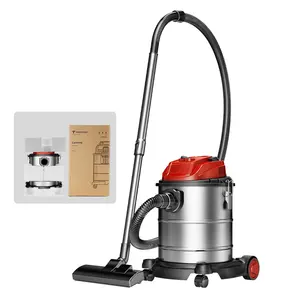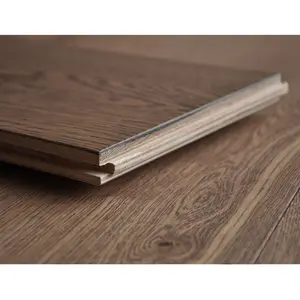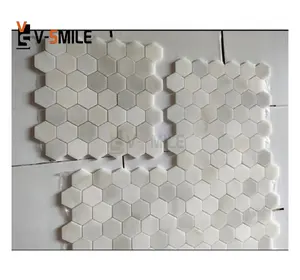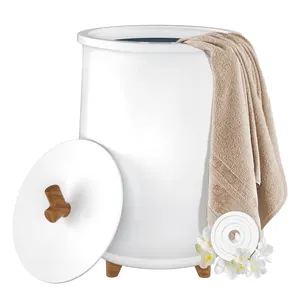Phổ biến trong ngành của bạn






Xách tay tay tự hành đẩy sàn Scrubber mini đi Bộ phía sau sàn Scrubber sàn nhỏ Máy làm sạch
530,00 US$ - 700,00 US$
Đơn hàng tối thiểu: 1 Bộ







Top Bán Hàng Khô Và Ướt Thảm Làm Sạch Máy 240V Bụi Sạch Máy Hút Bụi 60L Xô Máy Hút Bụi
72,00 US$ - 79,00 US$
Đơn hàng tối thiểu: 2 Hộp các tông





Bagotte Tự Đổ Thùng rác quét aspirador aspirateur aspiradora Robot Máy hút bụi sàn nhà ướt và khô lau nhà
10,00 US$ - 155,00 US$
Đơn hàng tối thiểu: 1 Đơn vị



Hút cao hộ gia đình mạnh mẽ Thảm Máy hút bụi nhà máy kiểu Mỹ 20L thương mại ướt và khô chân không sạch hơn
22,50 US$ - 25,00 US$
Đơn hàng tối thiểu: 2 Hộp các tông







Tự động js140 double side Bàn chải pin công nghiệp đường đi xe trên sàn quét với CE
1.800,00 US$ - 2.000,00 US$
Đơn hàng tối thiểu: 1 Bộ













Máy Hút Bụi Không Dây BLDC300W 26kPa Không Dây 7 Trong 1 Máy Hút Bụi Tự Động Làm Sạch Sàn LED Có Động Cơ
38,00 US$ - 55,00 US$
Đơn hàng tối thiểu: 1000 Cái






Máy hút bụi công nghiệp Máy hút bụi thu bụi cho máy mài sàn bê tông
600,00 US$ - 690,00 US$
Đơn hàng tối thiểu: 1 Bộ






Lesp, máy giặt thảm đa năng cho các loại sàn khác nhau, Máy hút bụi thảm nặng cho các vết bẩn cứng đầu
480,00 US$ - 550,00 US$
Đơn hàng tối thiểu: 1 Ampe












JS V7 Máy hút bụi bụi thu với Epoxy bê tông Mài sàn Máy mài máy
880,00 US$ - 2.799,00 US$
Đơn hàng tối thiểu: 1 Bộ






Máy Hút Bụi Tốt Nhất Cho Khách Sạn HT-10S Dung Tích 10L Khách Sạn Xây Dựng Sử Dụng Im Lặng Loại Sàn Sạch Máy Hút Bụi
50,00 US$ - 72,00 US$
Đơn hàng tối thiểu: 10 Cái
Các tìm kiếm liên quan:
máy hút chân không hiệu quả caomáy hút chân không có gasmáy hút chân không thông minhmáy hút chân không beirtrung quốc máy hút chân khôngmáy hút chân không thủ côngđánh giá chân không tự độngdây chuyền sản xuất máy hút bụimáy hút chân không ốngmáy hút chân không đơn hiệu quả caomáy hút chân không cho thực phẩmhệ thống chân không caomáy ống chân không năng lượng mặt trờigiá nhà máy máy chân khôngmáy hút chân không ở malaysia






Máy Hút Bụi ECO 21 Máy Hút Bụi Loại Nhà Máy Hút Bụi Cỡ Nhỏ Công Suất Lớn Mô Hình Kinh Tế
60,00 US$ - 125,00 US$
Đơn hàng tối thiểu: 1 Cái






Thương Mại Nhỏ Tiếng Ồn Thấp Hai Giai Đoạn Lọc Cyclone HEPA Lọc Loại Túi 110V 220V Sàn Bê Tông Công Nghiệp Chân Không sạch Hơn
Sẵn sàng vận chuyển
1.007,60 US$ - 1.060,40 US$
Đơn hàng tối thiểu: 1 Bộ
Vận chuyển mỗi chiếc: 1.000,00 US$






Không chổi than máy hút bụi không khí Khăn lau bụi chân không và thổi sạch hơn sofa sạch hơn máy
Sẵn sàng vận chuyển
15,80 US$ - 16,80 US$
Đơn hàng tối thiểu: 2 Cái
Vận chuyển mỗi chiếc: 12,91 US$






12000Pa Cầm Tay Không Dây Dọc Máy Hút Bụi Có Thể Sạc Lại Sàn Bụi Collector Thảm Quét
29,00 US$ - 31,00 US$
Đơn hàng tối thiểu: 8 Cái






Thiết Bị Hút Bụi Loại Nặng 5500kW 380/50 Máy Hút Bụi Công Nghiệp
2.500,00 US$ - 2.800,00 US$
Đơn hàng tối thiểu: 1 Cái






Jieming Mới 380V Tự Động Không Dây Di Động Loại Công Nghiệp Máy Hút Bụi Ngoài Trời Khác Giá Với Động Cơ Quạt Gió
735,00 US$ - 795,00 US$
Đơn hàng tối thiểu: 1 Cái






Chất Lượng Bền Dọc Loại Hộ Gia Đình Thiết Bị Nhà Làm Sạch Máy Sàn Bagless 100W Máy Hút Bụi Cho Nhà
32,80 US$
Đơn hàng tối thiểu: 500 Cái





SINO cleanvac 60L ướt và thử máy làm sạch máy mài tường Máy hút bụi công nghiệp Máy làm sạch
177,00 US$ - 190,00 US$
Đơn hàng tối thiểu: 5 Cái






Máy Hút Bụi Ướt V1 Cho Máy Mài Sàn Bộ Lọc Kích Thước Nhỏ Hepa
260,00 US$ - 276,00 US$
Đơn hàng tối thiểu: 1 Bộ






Smoovac Không Dây tất cả-trong-một thẳng đứng tự làm sạch ướt và khô chân không sàn lau cho nhà thông minh Điện Máy Làm Sạch Sàn
140,00 US$ - 150,00 US$
Đơn hàng tối thiểu: 30 Cái






H lớp máy hút bụi công nghiệp sàn bê tông loại túi Máy hút bụi công nghiệp movabl
3.000,00 US$ - 3.410,00 US$
Đơn hàng tối thiểu: 1 Bộ






Hút cao ống làm sạch thông minh tự động cửa sổ kính Robot chân không làm sạch Robot hộ gia đình kính làm sạch máy Sẵn sàng vận chuyển
Sẵn sàng vận chuyển
 Sẵn sàng vận chuyển
Sẵn sàng vận chuyển55,00 US$ - 60,00 US$
Đơn hàng tối thiểu: 2 Cái
Vận chuyển mỗi chiếc: 46,54 US$






Nhà máy cung cấp bê tông Epoxy Mài sàn và Máy đánh bóng
Sẵn sàng vận chuyển
330,00 US$ - 350,00 US$
Đơn hàng tối thiểu: 1 Bộ
Vận chuyển mỗi chiếc: 158,38 US$






Yangzi Máy hút bụi hộ gia đình công suất cao cầm tay máy hút bụi ngang Thảm máy loại bỏ bụi
Sẵn sàng vận chuyển
9,98 US$ - 10,88 US$
Đơn hàng tối thiểu: 50 Cái
Vận chuyển mỗi chiếc: 8,16 US$



New có dây cầm tay điện Ánh sáng trọng lượng có thể tháo rời hút Stick tiện dụng máy hút bụi tất cả trong một lau máy

55,00 US$
Đơn hàng tối thiểu: 500 Cây






3000Watt 60L ướt và khô công nghiệp Máy hút bụi hoover Máy Giá thiết bị tự động làm sạch HEPA lọc bê tông bụi extractor
910,00 US$ - 1.090,00 US$
Đơn hàng tối thiểu: 1 Cái






AS60-2J 60L 1000W Xách Tay Lọc Nước Thương Mại Lọc Cầm Tay Ướt Và Khô Xách Tay Công Nghiệp Máy Hút Bụi Với Độ Nghiêng
103,00 US$ - 128,00 US$
Đơn hàng tối thiểu: 1 Cái






3000W 80L Chất lượng cao ướt và khô Máy hút bụi công nghiệp thép không gỉ bể Thảm Máy hút bụi hệ thống
Sẵn sàng vận chuyển
90,00 US$ - 100,00 US$
Đơn hàng tối thiểu: 10 Cái
Vận chuyển mỗi chiếc: 432,95 US$


Nhà Máy hút bụi liectroux I7 Pro không dây ướt khô máy hút bụi
Sẵn sàng vận chuyển
135,00 US$ - 150,00 US$
Đơn hàng tối thiểu: 2 Cái
Vận chuyển mỗi chiếc: 23,77 US$


Không dây máy hút bụi cầm tay hộ gia đình cầm tay làm sạch xe Máy hút bụi

7,50 US$ - 8,50 US$
Đơn hàng tối thiểu: 100 Cái





Canister thương mại điện Máy hút bụi công nghiệp máy hút bụi tự động Máy hút bụi khô và ướt công nghiệp
129,00 US$
Đơn hàng tối thiểu: 1 Bộ






12kpa không dây mạnh mẽ di động xe Type-C cung cấp điện Stick Máy hút bụi Pin 220V bàn chải động cơ khô 350W sàn chăm sóc nhà
9,00 US$ - 10,00 US$
Đơn hàng tối thiểu: 5 Cái






Máy làm sạch hơi nước điện Máy làm sạch hơi nước cao áp máy làm sạch hơi nước 2500W 220V Máy làm sạch xe điều hòa không khí
22,60 US$ - 29,60 US$
Đơn hàng tối thiểu: 2 Cái






Thiết kế mới công nghiệp Bề mặt máy xay Máy hút bụi tay đẩy bê tông đánh bóng máy 220V nhựa Hướng dẫn sử dụng nhà khách sạn
1.400,00 US$ - 1.700,00 US$
Đơn hàng tối thiểu: 1 Bộ




Hộ gia đình độ bền dài xe gắn xách tay công suất cao không dây xe làm sạch máy hút bụi
13,20 US$ - 15,00 US$
Đơn hàng tối thiểu: 2 Bộ






Máy Hút Bụi Công Nghiệp Túi JS Thương Hiệu Đáng Chú Ý V5 Trung Quốc
2.750,00 US$ - 3.000,00 US$
Đơn hàng tối thiểu: 1 Bộ






3000Watt 60L ướt và khô công nghiệp Máy hút bụi hoover Máy Giá thiết bị với bộ lọc HEPA phong cách bê tông bụi extractor
910,00 US$ - 1.090,00 US$
Đơn hàng tối thiểu: 1 Cái
Các danh mục hàng đầu
Giới thiệu về loại sàn máy hút chân không
Alibaba.com cung cấp các sản phẩm 1329 loại sàn máy hút chân không. Có rất nhiều loại sàn máy hút chân không lựa chọn dành cho bạn, chẳng hạn như khách sạn, hộ gia đình, và xe. Bạn cũng có thể chọn từ khô, ướt và khô, và ướt loại sàn máy hút chân không. Cũng như từ không có, có loại sàn máy hút chân không.Và bất kể loại sàn máy hút chân không là pin, điện, hay usb.

























